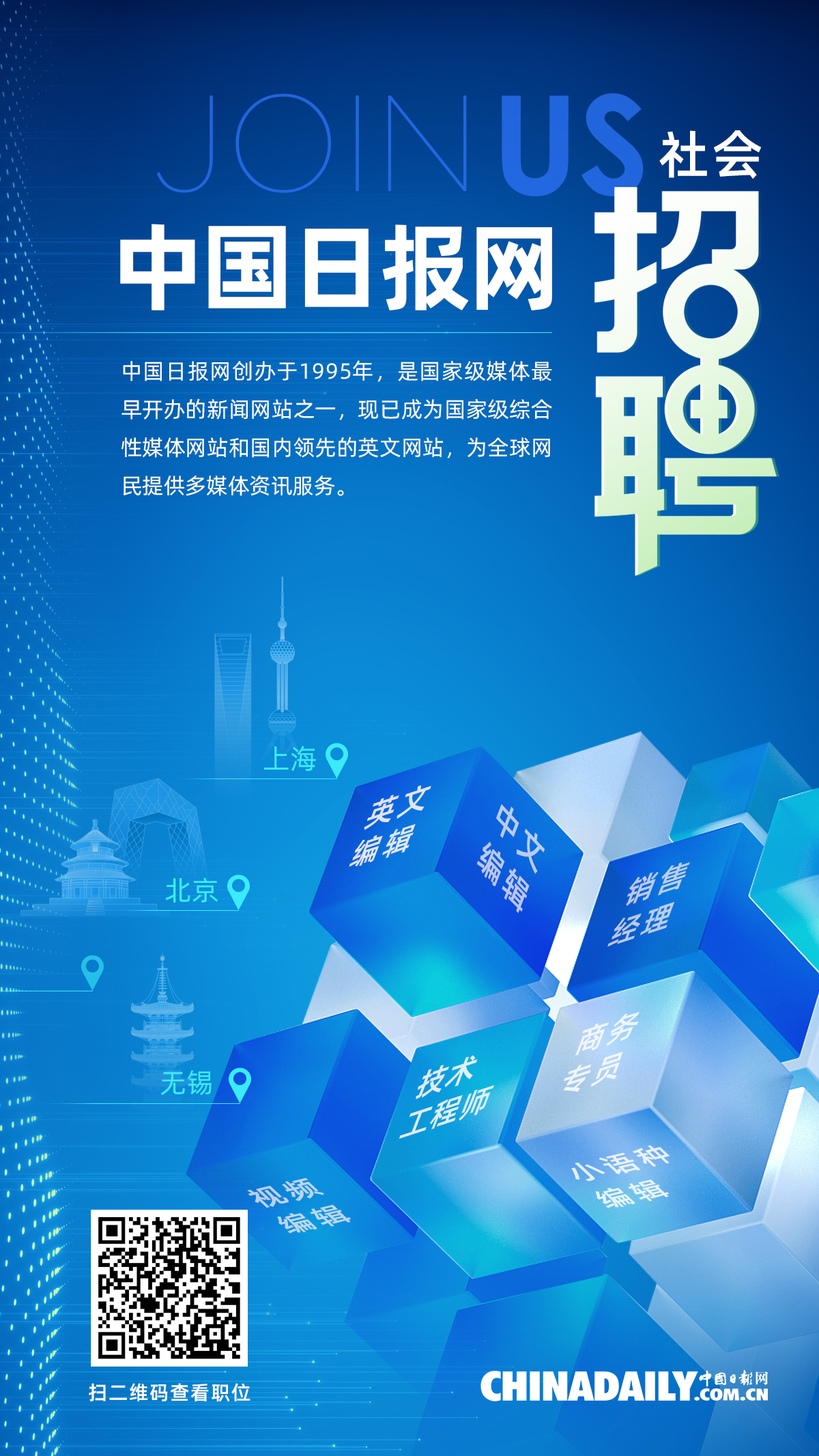
近日,工信部數(shù)據(jù)顯示,中國(guó)制造業(yè)增加值占全球比重從2012年的22.5%提高到2021年的近30%,持續(xù)保持世界第一制造大國(guó)地位。工信部規(guī)劃司司長(zhǎng)王偉表示,這十年,中國(guó)制造業(yè)規(guī)模優(yōu)勢(shì)不斷鞏固,體系完整優(yōu)勢(shì)更加凸顯。中國(guó)將繼續(xù)保持制造業(yè)比重基本穩(wěn)定,并加大力度加快產(chǎn)業(yè)升級(jí)。

China's manufacturing sector has made great strides in the past decade, with its contribution to global manufacturing output hitting nearly 30 percent last year, showcasing the crucial role the nation has played in safeguarding global industrial and supply chains, officials and experts said.
政府官員和專家表示,中國(guó)制造業(yè)在過(guò)去十年成績(jī)斐然,2021年制造業(yè)增加值占全球比重近30%,凸顯了中國(guó)在維護(hù)全球產(chǎn)業(yè)鏈和供應(yīng)鏈方面發(fā)揮的關(guān)鍵作用。
The comments came as China's top industry regulator said it will continue working to stabilize the proportion of manufacturing output in the GDP and step up efforts to accelerate industrial upgrade.
在他們發(fā)表上述言論之際,工業(yè)和信息化部表示,將繼續(xù)保持制造業(yè)比重基本穩(wěn)定,并加大力度加快產(chǎn)業(yè)升級(jí)。
Wang Wei, head of the planning department at the Ministry of Industry and Information Technology, said the proportion of China's manufacturing output worldwide rose from 22.5 percent in 2012 to nearly 30 percent in 2021, with the nation maintaining the title as the world's largest manufacturing country.
工業(yè)和信息化部規(guī)劃司司長(zhǎng)王偉表示,中國(guó)制造業(yè)增加值占全球比重從2012年的22.5%提高到2021年的近30%,持續(xù)保持世界第一制造大國(guó)地位。
Specifically, the country's manufacturing output value jumped to 31.4 trillion yuan ($4.65 trillion) last year from 16.98 trillion yuan in 2012.
具體而言,中國(guó)制造業(yè)增加值從2012年的16.98萬(wàn)億元增加到2021年的31.4萬(wàn)億元
China has the most complete industrial categories and industrial system in the world, with leading industry chain support systems, strong resilience and great potential, Wang said.
王偉表示,中國(guó)制造業(yè)是全球產(chǎn)業(yè)門(mén)類(lèi)最齊全、產(chǎn)業(yè)體系最完整的制造業(yè)。產(chǎn)業(yè)鏈配套能力全球領(lǐng)先,具有強(qiáng)大的韌性和發(fā)展?jié)摿Α?/p>
Meanwhile, the quality of products has also seen huge leaps forward. In the past 10 years, the export value of China's technology-intensive mechanical and electrical products and high-tech goods increased to 12.8 trillion yuan and 6.3 trillion yuan in 2021, from 7.4 trillion yuan and 3.8 trillion yuan in 2012, respectively, the ministry said.
與此同時(shí),產(chǎn)品競(jìng)爭(zhēng)力顯著增強(qiáng)。十年來(lái),中國(guó)技術(shù)密集型的機(jī)電產(chǎn)品、高新技術(shù)產(chǎn)品出口額分別由2012年的7.4萬(wàn)億元、3.8萬(wàn)億元增長(zhǎng)到2021年的12.8萬(wàn)億元、6.3萬(wàn)億元。
The number of industrial and information technology brands listed among the world's Top 500 brands increased from 10 in 2012 to 24 in 2021.
入圍世界品牌500強(qiáng)的工業(yè)和信息化領(lǐng)域品牌數(shù)量從2012年的10個(gè)增加到2021年的24個(gè)。
"China ranks first in the world in terms of output for more than 40 percent of the world's 500 major industrial products," Wang said, adding that mid-range to high-end products such as smartphones, smart TVs, energy-saving refrigerators, smart washing machines and automobiles have become commonplace in people's daily lives.
王偉稱:“世界500種主要工業(yè)產(chǎn)品中中國(guó)有四成以上產(chǎn)品產(chǎn)量位居世界第一。”他還表示,智能手機(jī)、智能電視、節(jié)能冰箱、全自動(dòng)洗衣機(jī)、汽車(chē)等中高端產(chǎn)品已走進(jìn)尋常百姓家。”
Companies are also stepping up their push to hone their research and development capabilities. Now more than 570 Chinese industrial companies made their way onto the list of global Top 2,500 companies in terms of R&D investment.
企業(yè)也在加快提高研發(fā)能力。如今,570多家工業(yè)企業(yè)入圍全球研發(fā)投入2500強(qiáng)。
"We have constructed 23 national manufacturing innovation centers, and supported the construction of 125 basic public service platforms for industrial technology," Wang said.
王偉稱:“我們已布局建設(shè)23家國(guó)家制造業(yè)創(chuàng)新中心和國(guó)家地方共建制造業(yè)創(chuàng)新中心,支持建設(shè)125個(gè)產(chǎn)業(yè)技術(shù)基礎(chǔ)公共服務(wù)平臺(tái)。”
Liu Wenqiang, deputy head of the Beijing-based China Center for Information Industry Development, said, "As China transitions from a manufacturing powerhouse to a smart-manufacturing hub powered by innovation, it will further help safeguard the stability of global industrial and supply chains."
中國(guó)電子信息產(chǎn)業(yè)發(fā)展研究院副院長(zhǎng)劉文強(qiáng)表示,“中國(guó)從制造業(yè)大國(guó)轉(zhuǎn)變?yōu)閯?chuàng)新驅(qū)動(dòng)的智能制造中心,將進(jìn)一步幫助維護(hù)全球產(chǎn)業(yè)鏈和供應(yīng)鏈的穩(wěn)定。”
According to the MIIT, the country will ratchet up resources to stabilize the proportion of manufacturing output in the country's GDP. In the second quarter, manufacturing output accounted for 28.8 percent of its GDP, up from 26.3 percent at the end of 2020.
工信部稱,將加大力度繼續(xù)保持制造業(yè)比重基本穩(wěn)定。第二季度制造業(yè)增加值占國(guó)內(nèi)生產(chǎn)總值(GDP)的28.8%,高于2020年底的26.3%。
In the face of the complicated external development situation, China's manufacturing sector has withstood the downward pressure and maintained growth momentum of recovery, Wang said.
王偉稱,面對(duì)錯(cuò)綜復(fù)雜的發(fā)展形勢(shì),中國(guó)制造業(yè)頂住下行壓力,保持了恢復(fù)增長(zhǎng)的態(tài)勢(shì)。
The industry regulator is also stepping up efforts to promote the convergence of digital technologies and manufacturing as part of China's broader push to promote industrial upgrade.
為推動(dòng)產(chǎn)業(yè)升級(jí),工信部也在加緊采取措施,促進(jìn)數(shù)字技術(shù)與制造業(yè)的融合。
Wang Zhiqin, vice-president of the China Academy of Information and Communications Technology, a government think tank, said the digital economy will increasingly become linked with the real economy, with the former helping the latter enter a new development stage.
政府智庫(kù)中國(guó)信息通信研究院副院長(zhǎng)王志勤表示,數(shù)字經(jīng)濟(jì)將與實(shí)體經(jīng)濟(jì)逐步融合,助力實(shí)體經(jīng)濟(jì)進(jìn)入一個(gè)新發(fā)展階段。
來(lái)源:中國(guó)日?qǐng)?bào)
編輯:董靜
